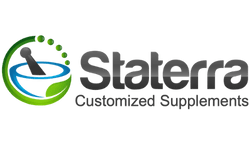Heartburn is typically a sign of having too little stomach acid. To encourage your body to make sufficient amounts of hydrochloric acid (stomach acid), you’ll also want to make sure you’re consuming enough of the raw material on a regular basis.
High-quality sea salt (unprocessed salt), such as Himalayan salt, will not only provide you with the chloride your body needs to make hydrochloric acid, it also contains over 80 trace minerals your body needs to perform optimally, biochemically. Sauerkraut or cabbage juice is also a strong—if not the strongest—stimulant for your body to produce stomach acid. Having a few teaspoons of cabbage juice before eating, or better yet, fermented cabbage juice from sauerkraut, will do wonders to improve your digestion. Supplementing with a probiotic on a regular basis can also be very beneficial.
Common culprits that trigger heartburn and acid indigestion include caffeine, alcohol, and nicotine products.
Besides addressing your day-to-day diet and optimizing your gut flora, a number of other strategies can also help you get your heartburn under control, sans medications. The following suggestions are drawn from a variety of sources, including Everydayroots.com, which lists (15) different natural remedies for heartburn; as well as research from the University of Maryland School of Medicine, the Beth Israel Deaconess Medical Center, and others.
Acid reflux typically results from having too little acid in your stomach. You can easily improve the acid content of your stomach by taking one tablespoon of raw unfiltered apple cider vinegar in a large glass of water.
Another option is to take a betaine hydrochloric supplement, which is available in health food stores. You’ll want to take as many as you need to get the slightest burning sensation and then decrease by one capsule. This will help your body to better digest your food.
Research published in 2009 found that gastrointestinal damage caused by H. pylori can be addressed with the amino acid glutamine, found in many foods, including beef, chicken, fish, eggs, and some fruits and vegetables. L-glutamine, the biologically active isomer of glutamine, is also widely available as a supplement and is very easy to take – being dissolved into juice, water, or smoothies.
Slippery elm coats and soothes the mouth, throat, stomach, and intestines, and contains antioxidants that can help address inflammatory bowel conditions. It also stimulates nerve endings in your gastrointestinal tract. The University of Maryland Medical Center makes the following adult dosing recommendations:
Tea: Pour 2 cups boiling water over 4 g (roughly 2 tablespoons) of powdered bark, then steep for 3 – 5 minutes. Drink 3 times per day.
Tincture: 5 mL 3 times per day.
Capsules: 400 – 500 mg 3 – 4 times daily for 4 – 8 weeks. Take with a full glass of water.
Lozenges: follow dosing instructions on label.
Ginger has been found to have a gastroprotective effect by blocking acid and suppressing helicobacter pylori. Add two or three slices of fresh ginger root to two cups of hot water. Let steep for about half an hour. Drink about 20 minutes or so before your meal. Before bed, try a cup of chamomile tea, which can help soothe stomach inflammation and help you sleep.
Research suggests B-vitamins can reduce your risk for acid reflux. Higher folic acid intake was found to reduce acid reflux by approximately 40 percent. Low vitamin B2 and B6 levels were also linked to an increased risk for acid reflux. The best way to raise your folate levels is by eating folate-rich whole foods, such as asparagus, spinach, okra, and beans.
NOTE: We’re all different and this list has great information if you are experiencing occasional heartburn and acid reflux. However, this is not an alternative to medication prescribed by your MD and you will want to look at the possible interactions if you are on other medications.
Know your body and use common sense!
